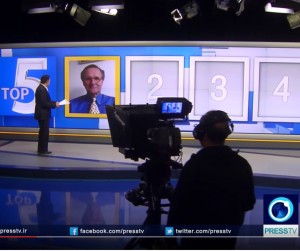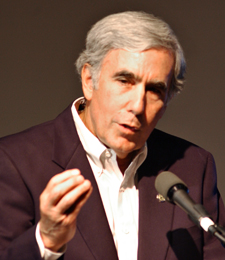Archive for May, 2017
Making friends with Russia
By Jonathan Power
May 9th 2017
Does anyone, however well-informed, know what President Donald Trump thinks about President Vladimir Putin? I hazard a guess that he is still more pro than anti, only he doesn’t quite know where to begin.
It’s time overdue that they met and hammered out on the anvil what their mutual interests are.
Presidents Bill Clinton, George W. Bush and Barack Obama have left a legacy that makes it hard for Trump to manoeuvre. They have trampled not so much on Putin but on Russia’s core interests.
When Putin’s predecessor, Boris Yeltsin, and later Putin himself were lobbying for what the last Soviet leader, Mikhael Gorbachev, had called a “common European house” they were taking heed of a Russian mood to drive through a new entente.
But there was no financial aid, as there was with Germany and Japan after World War 2. There was no move to envelop Russia into the EU’s family. With NATO the Russians were soon faced with expansion, taking in most of the Soviet Union’s former European allies.
The critical turning point was probably December 1, 1994 when the Russian, western-minded foreign minister, Andrei Kozyrev travelled to Brussels Read the rest of this entry »
Lost Peace and Fake News
By Jan Oberg
Joining “Middle East With Naskah Zada” at her program in New York and talking about the reasons that peace has become so ‘unpopular’.
Touching also upon international law, the new Cold War and the increasing U.S. involvement in Syria.
Safe Zones in Syria: A double-edged sword
By Farhang Jahanpour
After six years of brutal conflict in Syria, hundreds of thousands of fatalities, unimaginable hardship experienced by civilians with millions displaced inside the country or becoming refugees abroad, and the destruction of most of that ancient land, the Syrian tragedy is entering a new phase.
The Russian air campaigns that started on behalf of the Syrian government in September 2015 have strengthened the government against the rebels and have forced the rebels to agree to negotiations. To that extent, the Russian intervention must be seen as a success, as it has paved the way for the latest developments. Earlier attempts at intervention by the West and their coalition had failed, mainly because they were pursuing the single goal of regime change.
Meeting in Astana on 4th May 2017, the representatives of the Russian Federation, Turkey and Iran that back rival sides in the conflict signed a Memorandum establishing “de-escalation zones” in four parts of the country mainly under the control of the insurgents.
According to the Memorandum: “Along the borders of the de-escalation zones, it is envisaged to create safe areas to prevent incidents and direct clashes between the warring parties.” It is important to remember that this is not a ceasefire, or a final political agreement. As the name itself implies, it is aimed mainly at de-escalating the violence, thus paving the way for an eventual ceasefire and hopefully a political agreement between various warring factions in the coming months and years.
According to the agreement, the safe zones would include the whole of Idlib province; parts of Lattakia, Aleppo and Hama provinces; parts of Homs province; East Ghouta region; and also parts of the southern Deraa and al-Quneitra provinces. It seems that Turkey will exert some influence over Idlib, the Kurds will get a northern strip, and the rest of the safe zones will cater for the areas dominated by the rebels and the Syrian government.
This is the latest in a series of agreements and ceasefires that have failed to bring peace to Syria. Read the rest of this entry »
The Post Glory Exuberance Disorder – PGED
By Johan Galtung
Very well known is post trauma stress disorder, PTSD; no doubt a very painful disorder experienced by many, most, maybe by all of us. Something went very wrong: a shock, violence, physical, verbal, by and to individuals, groups in society, societies, groups of societies. Not only by and to individuals: PTSD does not belong to psychology only.
However, as Buddhist epistemology informs us: there is symmetry to the world. Anything can be seen from at least two angles: to “I walk down the street” add “the street moves toward me, ‘walks me up’”. Was Einstein inspired by Buddhism when he asked his famous question, “Does Zurich stop at this train?” Maybe not; his relativity, “moving relative to each other”, forced that question upon him anyhow.
For Buddhism, however, this thinking goes far beyond movement, into concepts and discourses. What would be the opposite of trauma? Evidently something positive.
For one, like this author concerned with war and peace, one type of trauma is defeat in a war and the opposite is victory. Basking in the glory, not suffering the gloom of trauma. And then, if trauma could lead to a state of stress, deeper and more permanent the deeper and more repetitive the trauma, maybe deep and repeated glory could lead to a state of, let us call it exuberance?
This opens for behaviorism: avoid trauma, seek glory. But the idea is deeper. Deep-repeated trauma leads to stress disorder, not only stress. Deep-repeated glory may lead to exuberance disorder: let us have more wars to enjoy more victories! Not only for defense!
We may refer to the same war. Death in a war is Read the rest of this entry »
“World Domestic Politics”
By Johan Galtung
Weltinnenpolitik, was the brilliant formula minted in 1963 by Carl Friedrich von Weizsäcker; nuclear physicist with a dubious career in the Nazi period, philosopher, peace activist, and believing Christian.
The world seen as one polity, one political unit. Not in terms of two levels, the world and the states–canonized as members of the UN – with domestic policies, and “foreign” policies.
“World domestic politics” calls for a world with neither states nor regions but the world as the polity. With LAs, local authorities, but basically with 7 billion+ humans, endowed with human rights and democracy.
A single shiny word, making many think and speak differently. Akin to all formulas giving rise to a number of problematic questions; one more proof of how fruitful this formula was and is. Thus, how can that one world polity organize political, cultural, military and economic power?
Brief, preliminary answers:
Political power: by the people, through direct world elections and referenda, to a world parliament, and on issues;
Cultural power: as a world dialogue of civilizations, meaning mutual learning for a possible world civilization, inside that world polity;
Military power-force: general and complete disarmament of state armies, world police operating at world and local levels like domestic police;
Economic power: by a welfare world lifting up suffering individuals.
We can sense that all four, direct world elections and referenda, world dialogue of civilizations (not only West-Islam), world police and welfare world are waiting back stage to be enacted, and to act. But on stage are states and super-states; singing their swan songs?
Let us try to dig more deeply into this.
We have about 200 domestic state polities – 193 are UN members – can anyone be a model? Read the rest of this entry »
What is wrong with Trump’s attack on Syria?
By David Krieger
Trump may have acted with insufficient evidence as to whether the chemical weapons attack was actually the responsibility of Assad and the Syrian government. Would Syrian president Assad be foolish enough to launch a chemical attack against civilians, when a military response from the US would be possible, even likely?
Peter Ford, a former UK ambassador to Syria, speaking on BBC Radio, said, “It doesn’t make sense that Assad would do it. Let’s not leave our brains outside the door when we examine evidence. It would be totally self-defeating as shown by the results…Assad is not mad.”
Critics of the US military response have suggested as a possible scenario for the chemical release in Idlib province that the Syrian government attack may have been a conventional bombing that exploded stored weapons in the possession of the Syrian rebels, which may have included chemical weapons.
Trump did not seek and obtain Congressional authorization…
For first time an African president convicted of war crimes
May 2nd 2017
Last May a court in Senegal convicted and sentenced to life-imprisonment Hissene Habre, the former ruler of Chad, for the crime of torture and crimes against humanity. On Thursday last, an appeal court upheld the sentence and now Habre, who ran from Chad after a coup in a military transport that airlifted him, his entourage and a Mercedes to what he hoped would be a luxurious exile in Senegal, is languishing in an ordinary prison cell.
Habre’s government killed more than 40,000 people during his presidency from 1982 to 1990, when he was deposed. The American government made a last minute effort to save Habre but failed. He had long been an important, if secret, ally.
He was, according to Michael Bronner, writing in the respected Foreign Policy magazine in January 2014, “The centrepiece of the Reagan Administration’s attempt to undermine Muammar Gadaffi who had become an increasing threat and embarrassment to the US with his support of international terrorism”.
Senegal became the first country in the world to ratify the treaty establishing the International Criminal Court (ICC). According to Hugh Brody, the head of the New York-based Human Rights Watch, Senegal “is a country that always considered itself to be in the avant-garde of international law and human rights”.
Nevertheless, for years it gave Habre refuge, before finally succumbing to pressure from human rights organisations, Belgium and the African Union to put him on trial.
One of the people who staggered to freedom from his jail in Chad, the moment of the release of all Habre’s political prisoners, was Souleymane Guengueng. He was a former accountant, nearly blind and barely alive. In 2013 he would prove to be Habre’s undoing.
Brody sent a student law team to Senegal to interview him. While in prison Guengueng had compiled Read the rest of this entry »
What if the US did not have any weapons?
By Jan Oberg
It’s soon 16 years ago when the invasion of Afghanistan took place – October 7, 2001 or 10/7, a date no one remembers like 9/11.
And Afghanistan had nothing to do with the terrible attack on September 11, but had to be punished anyhow. Out of proportion, no proportionality.
Now there are discussions about increasing the troop level again. What if someone reasonable intellectual asked the questions: What is it we are doing wrong?
So, I ask for heuristic – provocative – purpose: What would be left of US foreign policy if that country did not have weapons?
And I offer a short answer.








